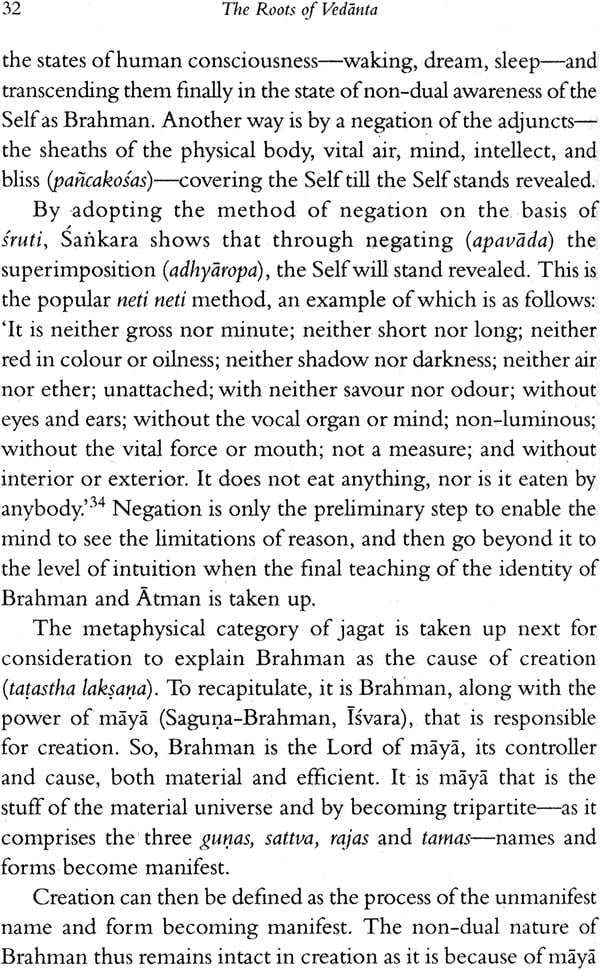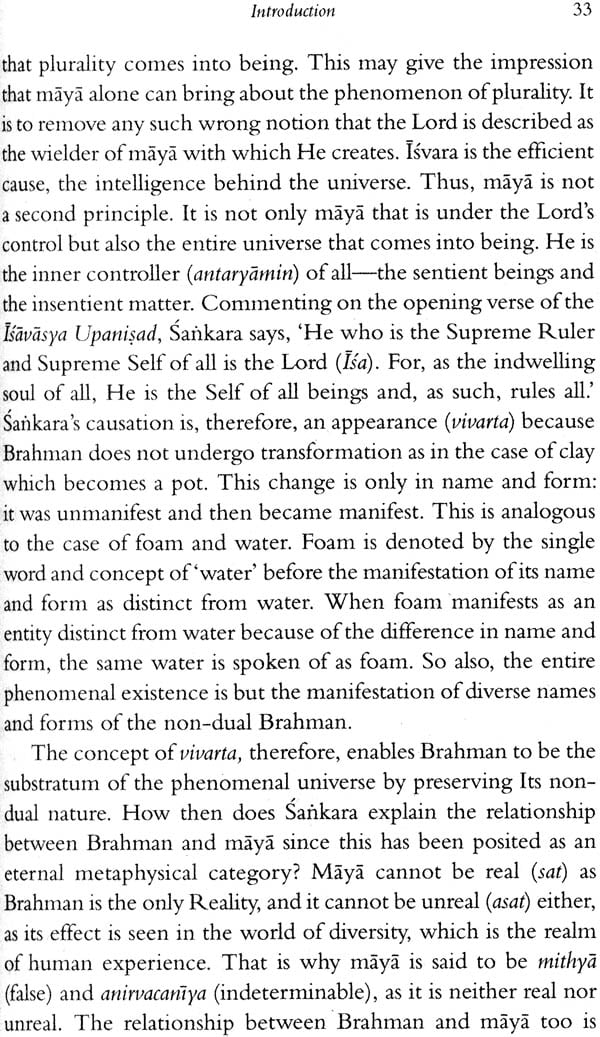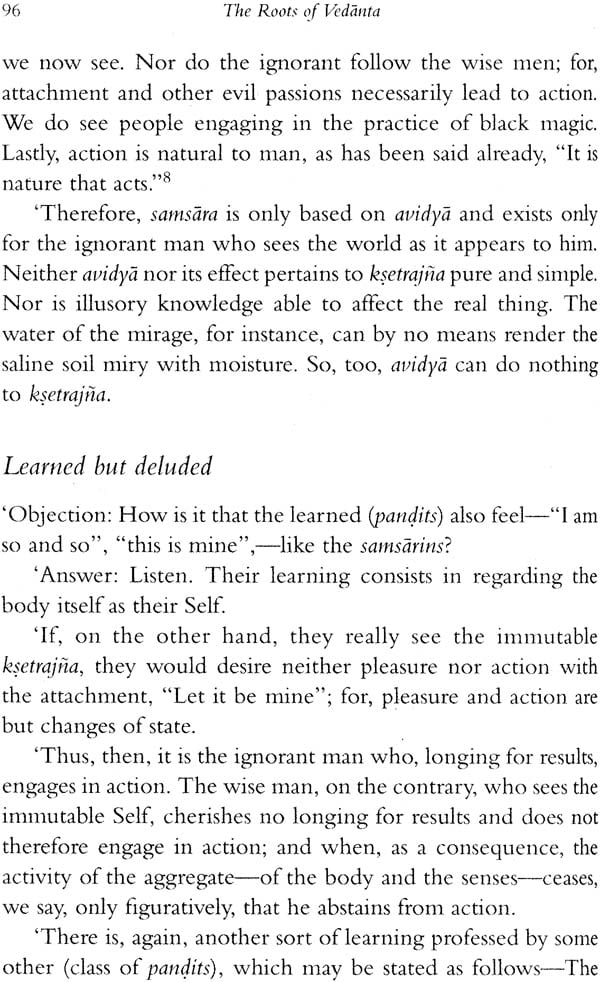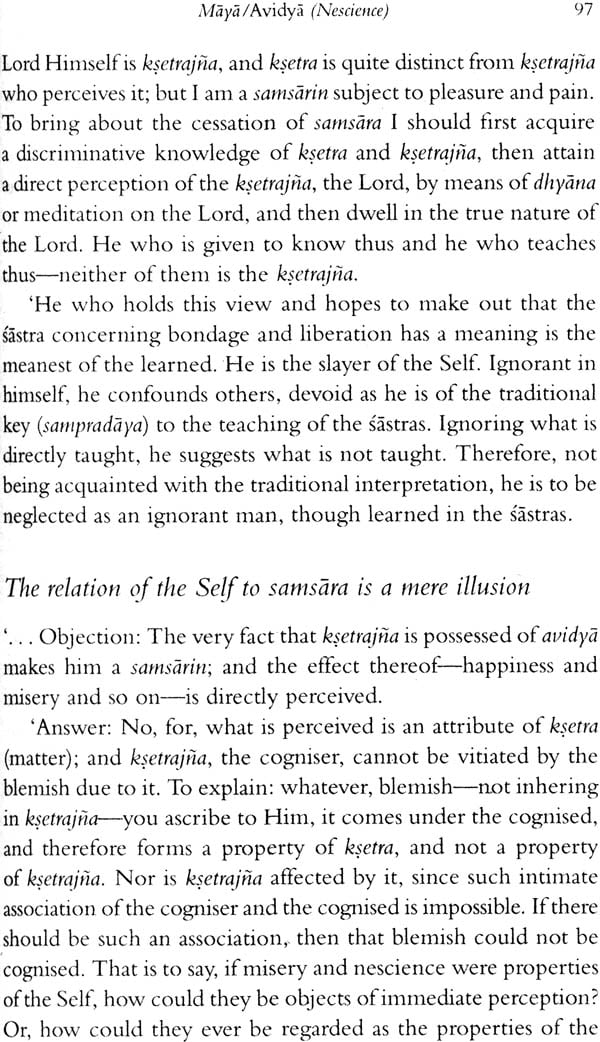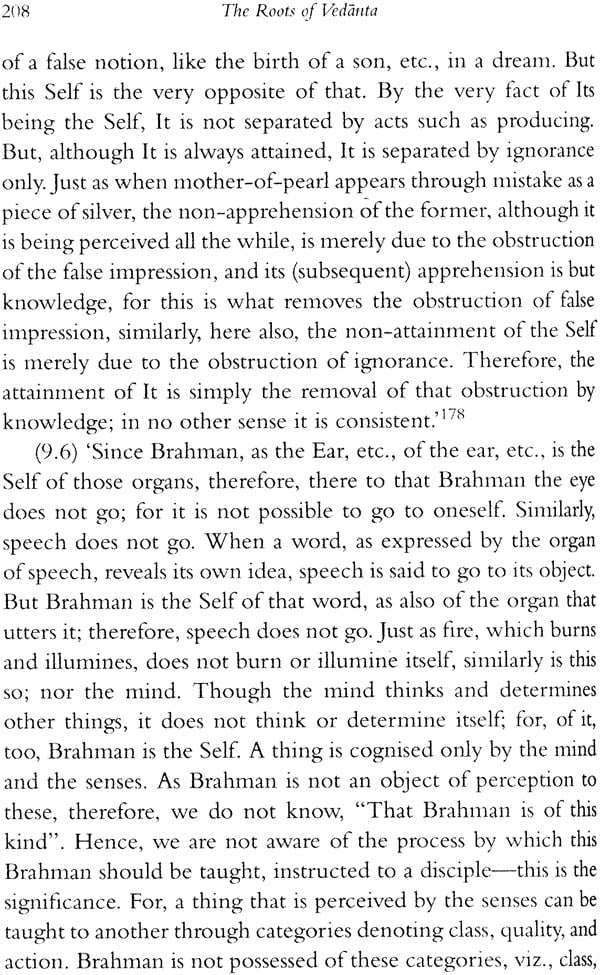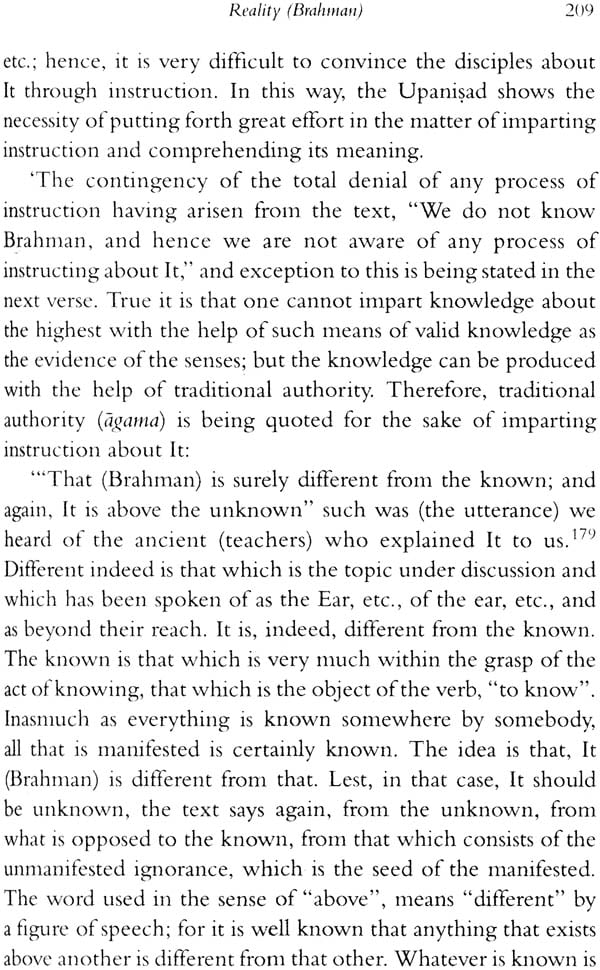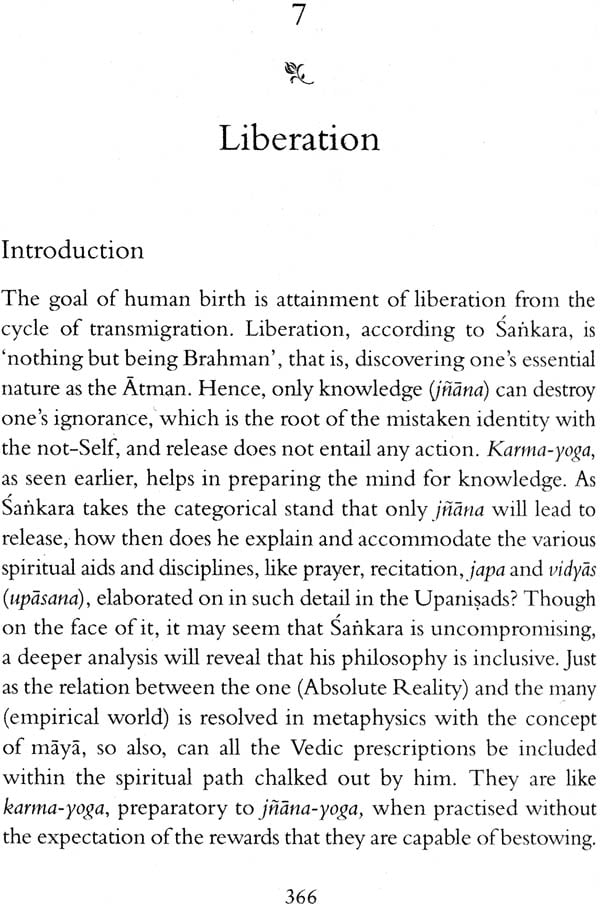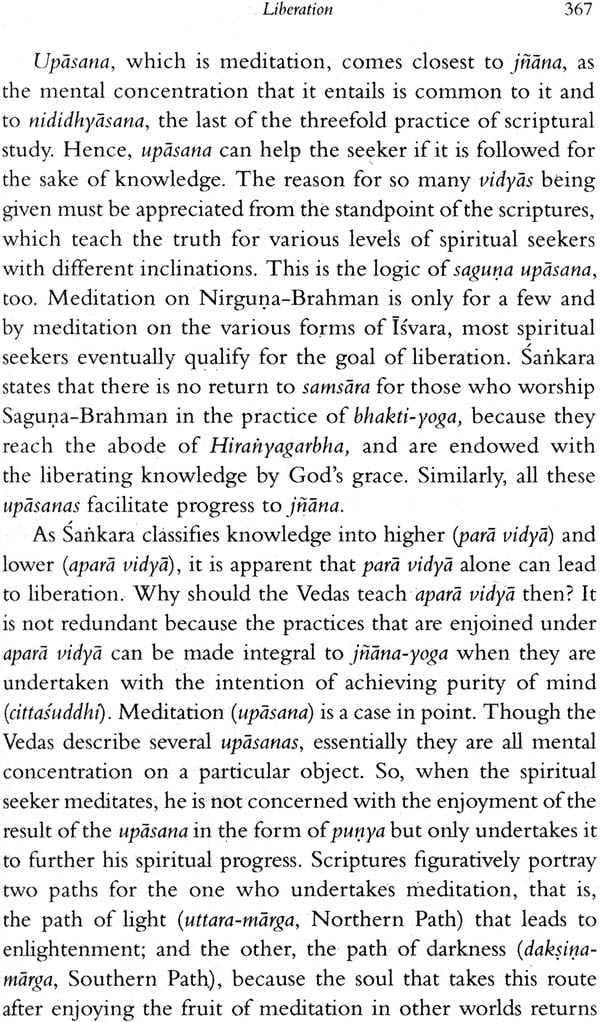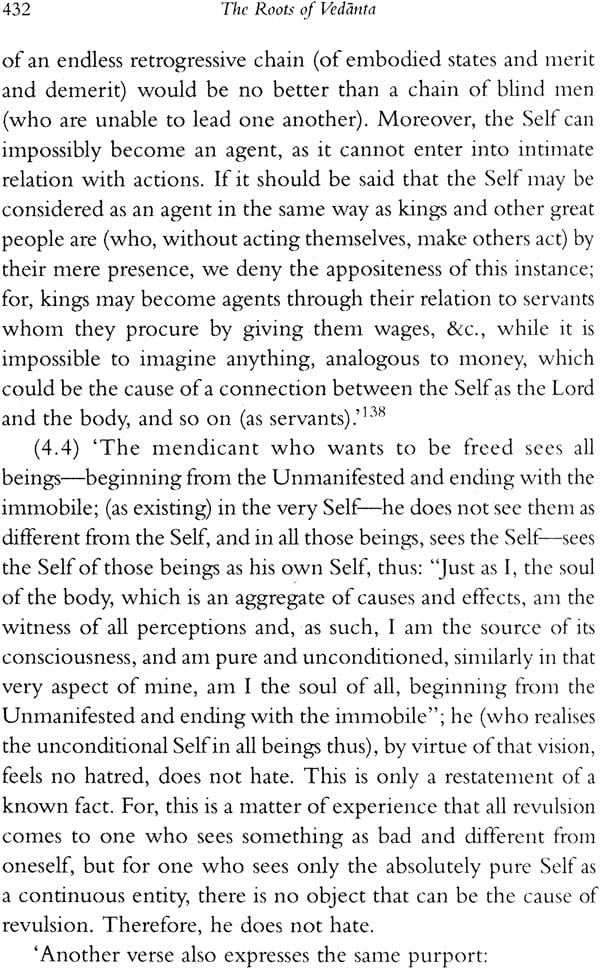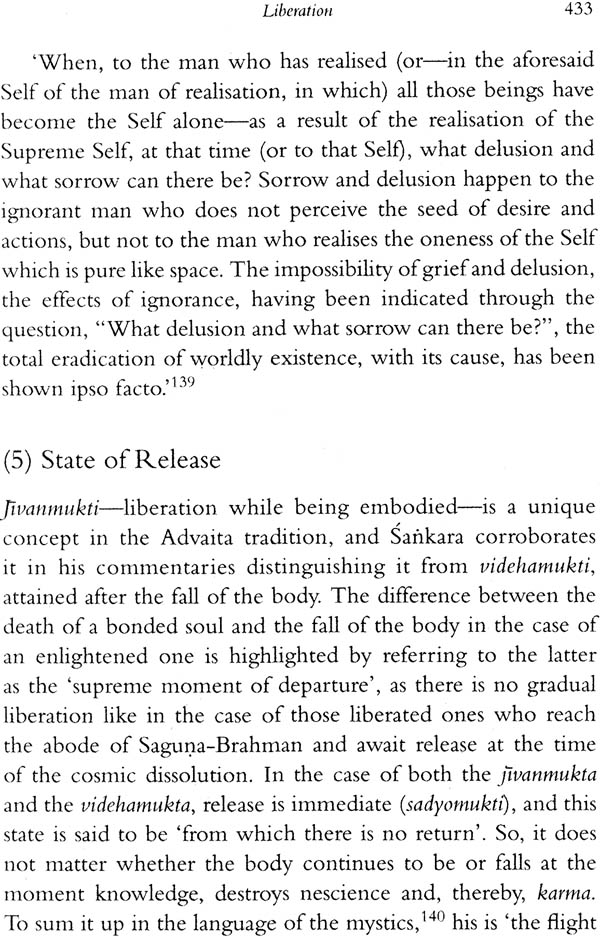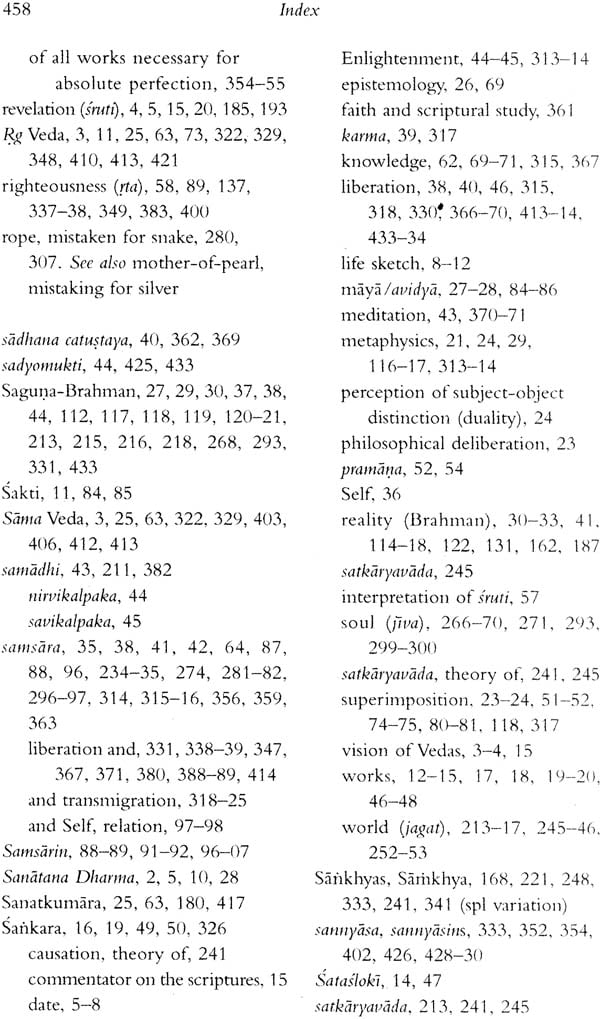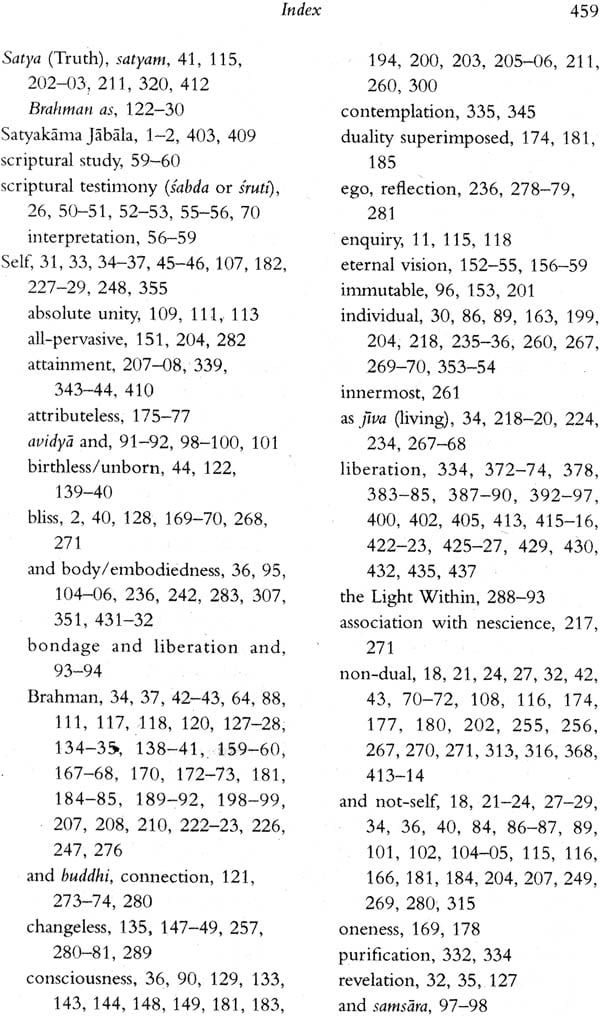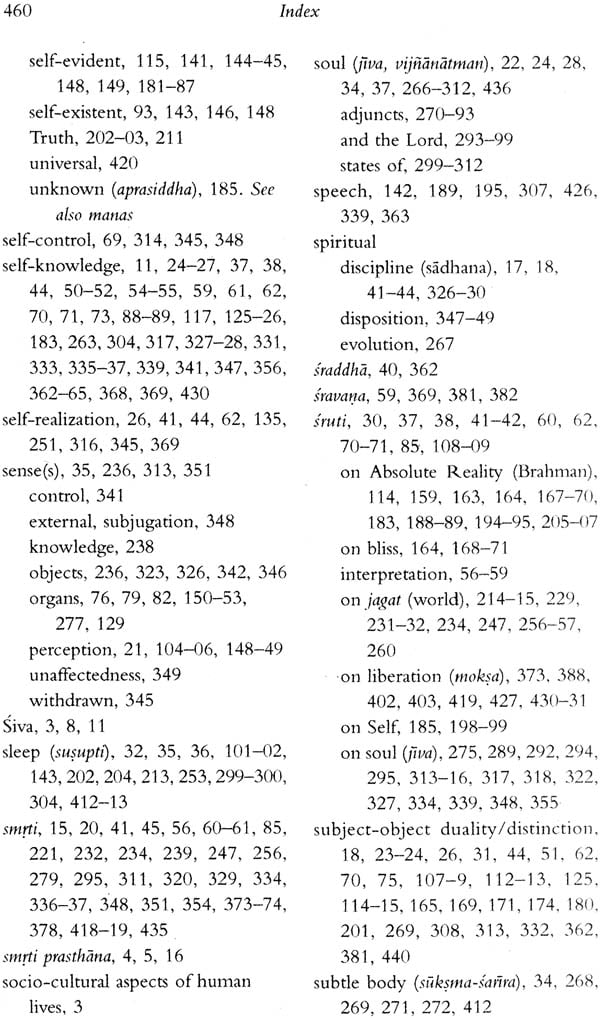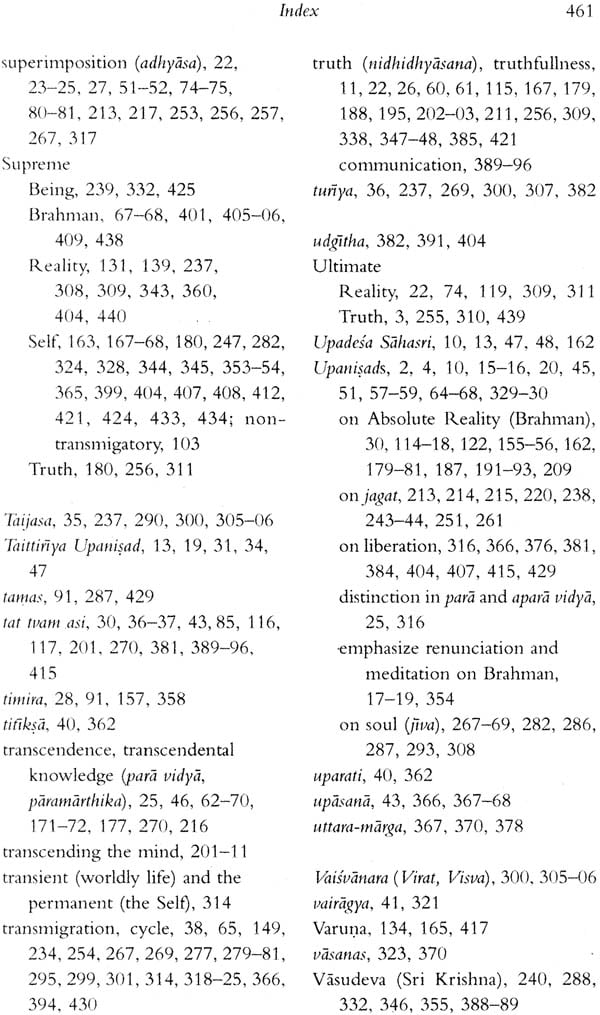
The Roots of Vedanta: Selections From Sankara's Writings
Book Specification
| Item Code: | NAC983 |
| Author: | Sudhakshina Rangaswami |
| Publisher: | Penguin Books India Pvt. Ltd. |
| Language: | English |
| Edition: | 2012 |
| ISBN: | 9780143064459 |
| Pages: | 467 |
| Cover: | Paperback |
| Other Details | 8.0 Inch X 5.0 Inch |
| Weight | 360 gm |
Book Description
It may sound a bit clichéd but with the writing of this book my life has come full circle. It was the spirit of inquiry which had led me to pursue academic study and research in Indian philosophy and my engagement with Vedanta since then has consciously and unconsciously shaped my life both personally and professionally. When I switched my career mid stream from academics in 1994 to become a writer of the daily popular column on religion in the Hindu Newspaper, I embraced this change because it presented both an opportunity and a challenge. For one who was familiar with the academic world my day to day work from then on afforded me the occasion to listen to the exposition of the scriptural texts by traditional scholars the challenge lay in presenting the abstract philosophical concepts to the general reader. My work also reinforced the truth that Vedanta is not Just armchair speculation but a lived experience to be imbibed from those who have followed its tenets. It is a vibrant living tradition that can be understood in all its facets only when it is approached with the objectivity of the scholar and with the right spirit of inquiry. It would not be an exaggeration to say that in the course of writing my columns over these years I gained greater clarity of thought and expression because lucid communication and sustaining the readers’ interest are paramount for a columnist. At the same time it must be said that Vedanta Cannot be diluted to make it appealing. Anyone who wishes to study Vedanta has to make an effort to familiarize himself with its fundamental concepts and terminology as in the case of any discipline. The Challenge in writing this book therefore was to strike the right balance so that the abstract concepts were intelligible even to the beginner.
It is the unique experience I have gained as an academic researcher and Media practitioner that prompted my book editor Kamini Mahadevan to propose that I undertake this exercise for the Penguin Classics series. When she approached me in early 2008 with an invitation to put together and anthology of Sankara’s writings my initial reaction was one of the hesitation because for one I felt that after a break of fifteen years from academic work I would not be able to get back to research that such a project would entail. I also hesitated due to the commitment that would be necessary to bring it to fruition because of the demands of my career and family life. I succumbed because it afforded me a chance to revisit the classical texts with a different perspective making them accessible to the modern reader. For me it was a nostalgic journey back in time a promise of new beginnings.
This book is an edited selection of Sankara’s writings with the objective of presenting the salient concepts of Advaita Vedanta according to Sankara. While there is a rich corpus of book available in the genre this differs from them in that it presents the teachings of Vedanta in Sankaras own words. Swami Atmananda’s Sri Sankara’s teachings in his own words and A.J. Alstons six volume a Sankara Source book both published several decades ago were undertaken with a similar purpose. While the former is a handy volume mainly intended for the spiritual seeker the latter is a very comprehensive manual suitable for intensive study and research. This attempt on the other hand strive to find the middle ground so that it can serve the interests of both the student of Vedanta and the modern reader for whom studying the original works of Sankara may be daunting. Besides with Sankara being the pre-eminent and central figure in the Advaita lineage it is necessary for the discerning reader of Vedanta to distinguish and appreciate the differences between and the nuances of pre Sankara and post Sankara though and developments for which grounding in Sankara Vedanta becomes all the more necessary and this book will meet with this need.
I have organized the passages from Sankara’s works in seven Chapters covering all the important concepts of Vedanta with a general introduction explaining the rationale of this anthology. The general introduction by itself is a standalone summary of the life mission works and teachings of Sankara and it also offers a bird’s eye view of what is explained in the chapters that follow. The introduction to each chapter is a concise account of the subject matters dealt with in it so that the reader can better appreciate the topics and the selected passages in them. I have annotated the selected passages under every topics so that it is easy to follow the nuances of the concepts and the arguments. The grouping of the passages also allows scope for easy reference.
I began this preamble on a personal note because the writing of this book coincided with the birth of my grandson Aniruddh my migration to the USA and moving on in life with the promise and hope of new beginnings. I offer this anthology to my readers with the same spirit that new vistas would unfold in their lives by engaging with Vedanta.
| Preface | xi | |
| Acknowledgements | xv | |
| Introduction | 1 | |
| Section I | 1 | |
| Vedanta Timeless | 1 | |
| Situating Vedanta | 2 | |
| Date of Sankara | 5 | |
| Life Sketch | 8 | |
| Works of Sankara | 12 | |
| Section II (Vedanta Tradition) | 15 | |
| The Roots of Vedanta | 15 | |
| Advaita Vedanta | 19 | |
| Philosophy of Standpoints | 21 | |
| Methods of Vedanta | 22 | |
| Section III (Concepts) | 23 | |
| Superimposition | 23 | |
| Ways of knowing | 25 | |
| Concepts of Maya | 27 | |
| Being and becoming | 29 | |
| Means to liberation | 37 | |
| Spiritual discipline | 41 | |
| Enlightenment | 44 | |
| Section IV (Process of selection) | 46 | |
| Choice of texts and their translations | 46 | |
| 1 | Epistemology | 50 |
| Pramana (Means of knowledge) | 52 | |
| Scope of Pramanas | 54 | |
| Interpretation of Sruti | 56 | |
| Scriptural Study | 59 | |
| Instruction through Dialogue Story | 60 | |
| Sruti, Yukti Anubhava | 61 | |
| Para Vidya and Apara Vidya | 62 | |
| Pramanas Relevant only till the self is known | 70 | |
| Source of Sruti | 73 | |
| Adhyasa | 74 | |
| Adhyasa the key to Metaphysics and Spiritual Discipline | 80 | |
| 2 | Maya/Avidya (Nescience) | 84 |
| Nature of Maya | 86 | |
| Effect of Maya | 100 | |
| Maya and Absolute knowledge | 108 | |
| 3 | Reality (Brahman) | 114 |
| Aspects of the Absolute Reality | 19 | |
| Brahman is Satyam Jnanam Anantam | 122 | |
| Brahman as Existence | 130 | |
| Brahman as consciousness | 141 | |
| Brahman as Bliss | 162 | |
| Brahman Not On Object to be Known | 171 | |
| Brahman Self Evident | 181 | |
| Path to Negation to know Brahman | 187 | |
| Transcending the Mind | 201 | |
| 4 | Jagat (world) | 212 |
| Brahman the cause of the world | 216 | |
| Causation | 241 | |
| Manifestation of Name and form | 245 | |
| Unreality of the world | 252 | |
| 5 | Soul (Jiva) | 266 |
| Adjuncts of the soul | 270 | |
| The Self’s is the light Within | 288 | |
| The Soul and the Lord | 293 | |
| States of the soul | 299 | |
| 6 | Path to perfection | 313 |
| Samsara and Transmigration | 318 | |
| Spiritual Path | 326 | |
| Means to Liberation | 330 | |
| Faith and prerequisites for scriptural study | 360 | |
| Result of Self Knowledge | 362 | |
| 7 | Liberation | 366 |
| Meditation | 370 | |
| Direct Means to Liberation | 381 | |
| Enlightenment | 413 | |
| Conduct of the Liberated one | 427 | |
| State of Release | 433 | |
| Glossary | 441 | |
| References | 445 | |
| Index | 448 |
